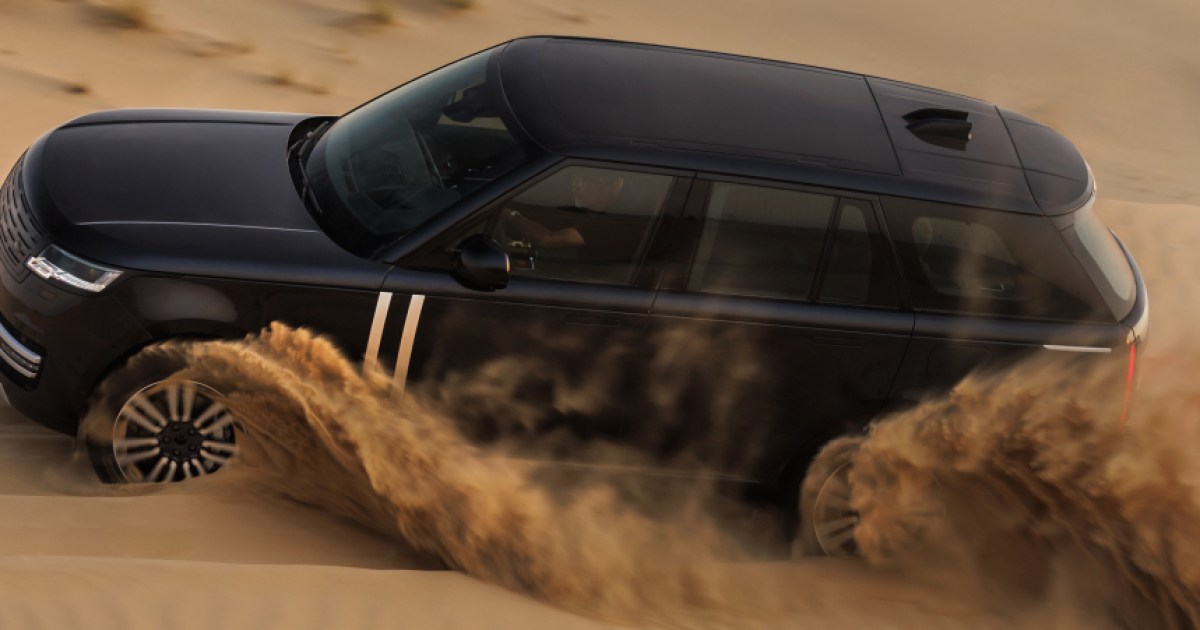
A big part of the reason it’s taken so long for Range Rover to develop its first-ever electric SUV is that the automaker wants the next-gen EV to remain, first and foremost, true to its roots.
“The electric Range Rover has to be a Range Rover first,” Lennard Hoonik, COO at parent company JLR, told Motortrend last summer.
For this to happen, the EV must be able to do everything current Range Rovers can accomplish. For a start, it must keep up with the brand’s all-terrain reputation, including in deep water, and be able to withstand extreme temperatures.
It’s for the latter reason that the electric SUV is currently getting tested in hot weather conditions in the United Arab Emirates, where temperatures can reach over 120 degrees Fahrenheit.
“Range Rover Electric prototypes are currently in one of the world’s most unforgiving climates, undergoing the most intensive testing any Range Rover has ever endured,” JLR says.
The SUV is made to tackle 300-foot sand dunes, with its performance and efficiency “fiercely” challenged to make sure its propulsion system remains reliably temperature-controlled. And through it all, the luxury SUV must continue to provide “maximum client cabin comfort.”
JLR says the electric SUV’s performance currently “excels” through this stage of development, ahead of honoring client reservations in 2025. Last month, JLR said there were already 48,000 preorders for the Range Rover Electric.
While many details about the SUV still remain undisclosed, its 8,000-volt architecture does promise fast charging times. There’s a lot of speculation that it may have a four-motor setup, or one motor for each wheel, similar to the one found on the Mercedex-Benz G-Class EV.
And to keep up with Range Rover’s luxury reputation, JLR says drivers will be able to customize the SUV to their liking.
Services Marketplace – Listings, Bookings & Reviews
